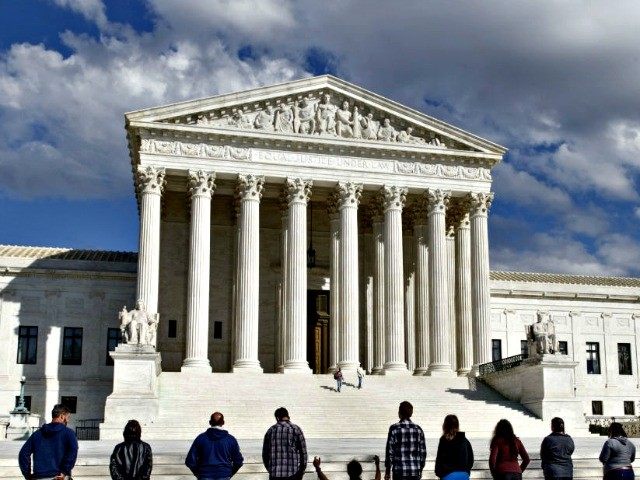Public sector unions, the bedrock of the Democratic Party base, reacted with horror on Tuesday as the U.S. Supreme Court agreed to hear a case that could release employees from paying mandatory fees to unions representing their professions.
The chiefs of the National Education Association; American Federation of Teachers; California Teachers Association; American Federation of State, County and Municipal Employees; and Service Employees International Union released a statement, asserting, “The court is revisiting decisions that have made it possible for people to stick together for a voice at work and in their communities,” according to the Los Angeles Times. The combined groups represent 4.6 million teachers and 3.6 million other employees; the California Teachers Association spent over $200 million on political issues between 2000-2009, according to Watchdog.org.
Jean Ross, co-president of National Nurses United, complaining that the drive to attack public unions was led by the Koch brothers and other corporate groups, moaned that the groups intended to “essentially bankrupt public-sector unions.”
The case in question, Friedrichs v. California Teachers Association, was brought by Rebecca Friedrichs and other public teachers from Orange County, who felt they were forced to pay fees to the California Teachers Association even though they were not members.
Members of the union pay dues of roughly $1,000 a year; nonmembers have to cough up an average of $650. Friedrichs had stated, “I don’t have a voice or vote in the union, and I’m opposed to forced fees and forced unionism.”
For the Friedrichs case to be approved, the court would have to overturn its ruling in 1977’s Abood v. Detroit Board of Education, which permitted government worker unions in 21 states to gather “fair share” fees to be used for collective bargaining. Judge Antonin Scalia voted for Abood, making him the crucial vote in Friedrichs if it is to be adopted.
Harvard Law School Professor Benjamin Sachs pointed out the significance of Friedrichs to the Times, asserting, “This is a very significant case. It may well be life or death for the unions. Unions are required to represent everyone. And this could mean nobody has an obligation to pay.”
Roughly half of the 50 states have “right-to-work” laws that ban collective bargaining and union agreements that force employees to pay fees to the union. Wisconsin Governor Scott Walker effectively ended collective bargaining for the bulk of public workers in his state with Act 10 of 2011. Teachers’ unions were affected most directly, and led protests against the law.

COMMENTS
Please let us know if you're having issues with commenting.